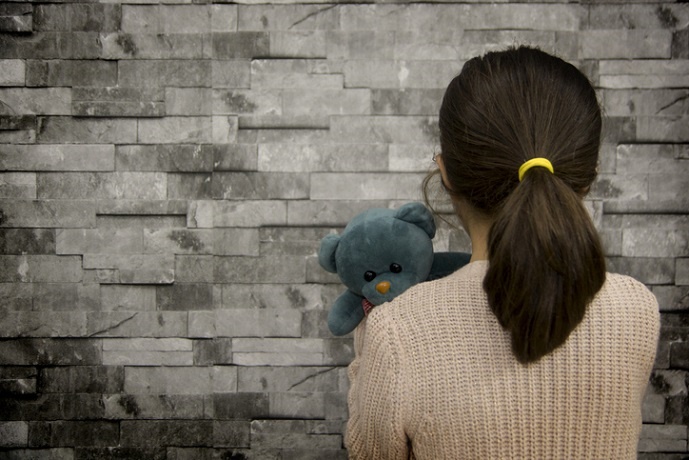
Families are the bedrock of any society and are the most important social unit in providing a nurturing and supportive environment for children to thrive and grow. In a country with an estimated 3.7 million orphaned and vulnerable children, legislation should facilitate the seamless adoptions.
However, as is all too often the case, proposed national legislation will make it more difficult for would-be parents to adopt. Such a policy denies the most vulnerable children in our society of an opportunity to enjoy a better life. The proposed amendments to the Children’s Act were gazetted in October 2018, giving the public 30 days to comment (to see the gazette, please click here).
In essence, the amendments will prohibit all payments to social workers, lawyers and other professionals in NGOs or private practice for performing adoptions, even if it is only to recover basic costs.
Adoptions would effectively become the sole responsibility of the state’s social workers. The proposed amendments allegedly aims to make adoptions “more accessible”, but the real outcome will be a total shut down of all adoptions in South Africa.
Also see: Adoption in South Africa and abroad
What is your take on the proposed amendments to the Children’s Act? Tell us, and we could publish your letter. Do let us know if you'd like to stay anonymous.
"The situation has become so dysfunctional"
South African social workers have exceedingly high caseloads, over 100 on average, despite South African norms and standards recommending a maximum of 60. Social workers in developed countries like the UK and US have far less, at around 20 to 30 children per social worker. The consequences are clearly visible in South Africa, as all provinces, excluding the Western Cape, are sitting with thousands of backlogs in foster care cases which need to go to court.
The situation has become so dysfunctional that the North Gauteng High Court has had to repeatedly issue orders extending all foster care cases in the country to prevent orphaned and vulnerable children from being left in a legal limbo, and to ensure that they can receive SASSA grants.
The High Court has now lost its patience with the national Department of Social Development (DSD) and has ordered that steps be taken to finally eradicate the foster care backlog by no later than November 2019.
Also see: Adoption brings hope: Two SA families share their stories
"Adoptions will be placed on the back burner, and will cease to occur almost entirely"
In this context, the proposed amendments will ensure that DSD’s social workers continue struggling to attend to their existing caseloads and to meet the requirements of the High Court ruling. Additionally, social workers will have to make more time for adoptions.
In practice, adoptions will be placed on the backburner, and will cease to occur almost entirely. NGOs and the private sector take tremendous strain away from the DSD as they efficiently and safely process adoptions for those who those who prefer to use private services.
The Departmental social workers can also process adoptions where appropriate, but this does not need to be done to the exclusion of NGOs or the private sector. What’s more, by making government-employed social workers responsible for processing adoptions, we risk the closure of many private institutions and NGOs which provide adoptive services.
"The amendments will deny capable, loving, and financially stable would-be parents the opportunity to have a family"
In the Western Cape, there are currently 7 organisations which provide adoptive services on behalf of the WC DSD. In total, 86 social workers are employed by these organisations, who would otherwise be made unemployed.
This number does not account for the many migration specialists, psychologists and medical practitioners who will also be excluded as a result of the amendments. The Sunday Times recently explained that a further rationale behind the amendments is reportedly to reduce the number of adoptions so as to maintain children’s “spiritual cultural” ties.
However, in most cases of adoption, relatives and parents of the child cannot be found, despite expensive advertising exercises to locate them. Amending the adoption process in this way risks leaving children in a perpetual foster-care placement and creates an additional burden on the child, family and social worker who will have to appear in court every two years for an extension.
Consequently, the amendments will deny capable, loving, and financially stable would-be parents the opportunity to have a family while also offering children the kind of nurturing environment they need and deserve.
Adoptive homes such as these give children access to opportunities such as university that the adopted child would otherwise not enjoy.
Under my leadership, the WC DSD remains committed to ensuring the well-being of all children in the province. As such, I find the proposal that the state be made the sole custodian of the adoption process extremely problematic and cannot support it. The state should not limit opportunities afforded to the most vulnerable young people in our society.
Chat back:
What is your take on the proposed amendments to the Children’s Act? Tell us, and we could publish your letter. Do let us know if you'd like to stay anonymous.
Read more:
- WATCH: The moving moment a young girl was told she was being adopted
- How a New Zealander found his Russian birth parents – and now helps others too
- Cape Town Adoption Support




 Publications
Publications
 Partners
Partners











